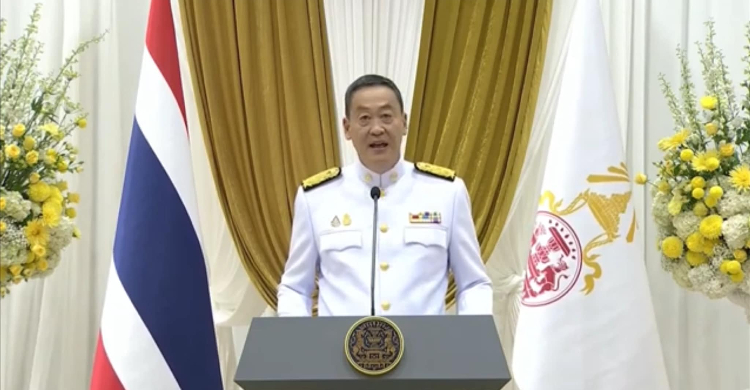
Srettha Thavisin was elected Prime Minister yesterday, ensuring that Pheu Thai’s coalition will form the next government. Srettha won the bicameral parliamentary vote just a few hours after former prime minister Thaksin Shinawatra, Pheu Thai’s de facto leader, returned to Thailand. The timing was surely not a coincidence: it’s possible that Thaksin’s return was conditional on Pheu Thai inviting the political wings of the military junta into its coalition.
Srettha, along with other Pheu Thai executives, had categorically ruled out working with either of the military parties, Palang Pracharath and United Thai Nation. After both parties joined the bloc, Srettha argued that “it is necessary to forget what we said.” With the military parties on board, a majority (153) of the junta-appointed senators endorsed Srettha’s nomination as PM, whereas Move Forward’s prime ministerial candidate Pita Limjaroenrat secured only thirteen senators’ votes last month. (Srettha is the last PM who will be elected based on Senate votes, as the constitution gives senators that right for only five years.)
The military seemingly regard Pheu Thai as the lesser of two evils, and struck a deal to prevent Move Forward, the election winners, from forming a government. Quid pro quo: in exchange for abandoning Move Forward in favour of the military parties, Pheu Thai’s prime ministerial candidate has been elected and Thaksin has returned to Thailand, presumably with assurances that his eight-year prison sentence will be overturned.
But at what cost? Pheu Thai has invited the fox into the henhouse, and the military will resist any proposed democratic reforms, so plans to draft a new constitution are likely to be scaled back. An elected Pheu Thai government was deposed by the 2014 coup, but the military parties will now remain at the cabinet table, in a Faustian pact that the party’s grassroots supporters are unlikely to forget.
Srettha, along with other Pheu Thai executives, had categorically ruled out working with either of the military parties, Palang Pracharath and United Thai Nation. After both parties joined the bloc, Srettha argued that “it is necessary to forget what we said.” With the military parties on board, a majority (153) of the junta-appointed senators endorsed Srettha’s nomination as PM, whereas Move Forward’s prime ministerial candidate Pita Limjaroenrat secured only thirteen senators’ votes last month. (Srettha is the last PM who will be elected based on Senate votes, as the constitution gives senators that right for only five years.)
The military seemingly regard Pheu Thai as the lesser of two evils, and struck a deal to prevent Move Forward, the election winners, from forming a government. Quid pro quo: in exchange for abandoning Move Forward in favour of the military parties, Pheu Thai’s prime ministerial candidate has been elected and Thaksin has returned to Thailand, presumably with assurances that his eight-year prison sentence will be overturned.
But at what cost? Pheu Thai has invited the fox into the henhouse, and the military will resist any proposed democratic reforms, so plans to draft a new constitution are likely to be scaled back. An elected Pheu Thai government was deposed by the 2014 coup, but the military parties will now remain at the cabinet table, in a Faustian pact that the party’s grassroots supporters are unlikely to forget.
